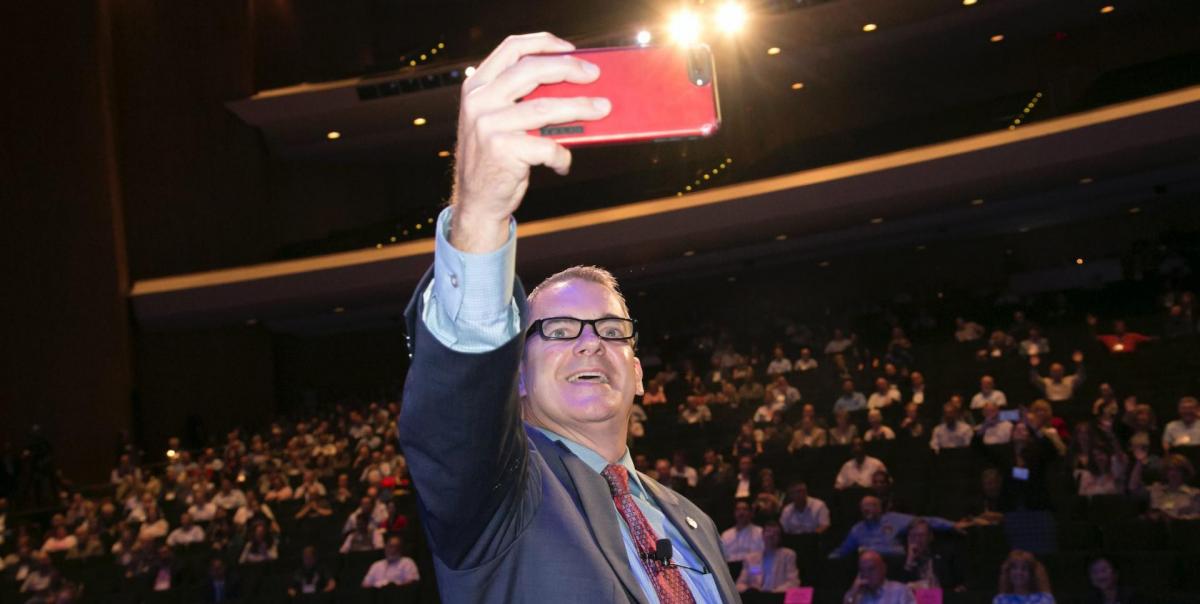The Sixth Council Member: Social Media
Few topics command more interest on the local government circuit than social media (though emergency communications runs a close second). For the past eight years, I have observed many of California’s public agencies both embracing and despising social media — and becoming innovators within it. The rise of platforms like Nextdoor and Facebook Groups are forcing public agencies and public servants to rethink their definitions of “community engagement.”
Criticism of government is not new. But because the internet makes it easy to post rants and diatribes, more people who are critical and outspoken have an easy conduit for voicing their frustration. Local government remains the most trusted form of government — even though trust in the federal government has reached a 60-year low, according to an April 2019 report from the Pew Research Center. As members of the public embrace new digital platforms for communicating with each other, it’s the duty of public agencies and elected officials to make themselves available on these same platforms in the pursuit of community engagement.
Building trust is harder to do when your communications travel in only one direction: out. Creating opportunities for constituents to voice their concerns and hopes in settings where they’re most comfortable helps build stronger bridges between a city and its communities. It may even be possible to turn some critics into advocates over time.
The Impact of Social Media on City Operations
Assessing city social media programs and the impact of social media on operations, including the city council, is an ongoing concern for many municipalities.
It is not uncommon for city council members to cite conversation threads from a large community Facebook Group when discussing public sentiment about a council agenda item. These community conversations are influencing the way council members vote or consider voting on city policies and business. As a result, city leaders and administrators may ask, “What is our city’s reach and engagement on social media compared with this large Facebook Group?” The answer is often “Not great.” This situation is compounded by the Facebook algorithms that determine what users see. Current algorithms aren’t doing public agencies any favors, because people are seeing more content from friends, family and Groups rather than public agency Pages.
Social media has also upended the world of broadcast media and the global flow of information. Today, a Facebook Group administrator might have the same (or more) power as a newspaper editor. The administrators hold the keys to the community’s digital “watering hole” and can set the rules of moderation and, to a large extent, the tone and direction of the conversation.
The other online social network of particular interest to city officials and staff interested in community engagement is Nextdoor, which is designed to facilitate communication within neighborhoods. On the site, neighbors post notices and interact with one another on topics ranging from garage sales to lost pets and Neighborhood Watch.
On Nextdoor, a public agency can create an Agency Page (much like a Facebook Page) to post content and reach Nextdoor members. An Agency Page and its administrator cannot, however, view conversations within Nextdoor Neighborhoods. To address this challenge, try messaging the Nextdoor “Neighborhood Leads” in your city and asking them to share concerns with you if they see issues of interest, such as public works or public safety, being discussed in their respective Neighborhoods.
Keeping a Finger on the Pulse of the Community
Social media’s pervasive impact underscores the importance of cities and elected officials having their collective finger on the pulse of these online civic conversations. If you’re serious about community engagement, you need to make an effort to listen to your residents in the mediums they consider most convenient and where they’re comfortable sharing their thoughts, reactions and concerns. These conversations in community Facebook Groups and Nextdoor Neighborhoods can serve as canaries in a coal mine, warning that there may be trouble ahead at your next council meeting. City officials and staff who track these online discussions are better prepared to speak to their constituents’ concerns and less likely to be caught unaware of a developing local issue.
Of course, some of what you read online may be the skewed opinions of a vocal minority. As the number of court cases related to social media continues to increase and laws become more complex, elected officials may find it increasingly challenging to understand how to draw the line between personal and professional use of social media and comply with the legal requirements related to their use.
Become Social Media Savvy
With the potential downsides that can accompany being active on social media, it can be tempting to avoid it or ignore it altogether. However, even if you don’t personally use social media, your constituents definitely do — and they are using it to talk about you, your policy decisions and the community they call “home.” To develop a strategy and become a social media-savvy public official, be sure to attend the upcoming session on this topic at the League’s 2019 Annual Conference & Expo (see sidebar at right for more information.)
Don’t Miss This Session at the Annual Conference
At the League of California Cities 2019 Annual Conference & Expo, attendees will have a chance to learn more about social media’s impact on community engagement during a panel session titled “The Sixth Council Member: Social Media.” This session will explore the evolution of community engagement in the internet age through firsthand insights from a government social media expert, a Gen X city manager, a tech-savvy mayor and a free speech/social media legal expert. The panel discussion will cover:
- Strategies cities and elected officials can use for leveraging social media to listen to and engage with their communities;
- The ways social media is impacting community-government relations;
- How to avoid the pitfalls of using social media as both a resident and a public servant;
- The legal aspects of social media and how to avoid controversy online;
- Why you can’t just block an annoying gadfly on social media; and
- How the Brown Act applies to tweets and Facebook comment threads.
A mayor will describe the not-so-scary side of using social media to engage residents, share positive content and grow your personal brand.
If you are a council member, you will gain confidence about how to interact online without putting yourself or your agency at risk — and your city manager and city attorney will thank you.
This session will be held Wednesday, Oct. 16, from 3:45–5:00 p.m.; see the conference program or mobile app for location details.
Related Resources
Boosting Community Engagement With Social Media: How One City Is Using Facebook Live
City Use of Social Media: Legal & Other Considerations
Leveraging the Power of Social Media When Disaster Strikes
Tools to Engage Your Community in the Budgeting Process
Taking the Bite Out of Blogs: Ethics in Cyberspace
Photo Credit: Alexsl (Social media icons); Jeremy Sykes, courtesy of the League
This article appears in the September 2019 issue of Western City
Did you like what you read here? Subscribe to Western City






